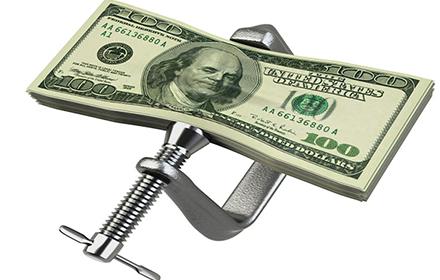How to Create an Emergency Fund When on a Tight Budget
Posted by : Premraj | Posted on : Wednesday, April 12, 2017

An emergency fund is important. When times of trouble come, and they will, there is no need to panic or wonder where the money will come from. If you are living paycheck to paycheck, then building an emergency fund can be difficult. For some, setting money aside can seem impossible. Even if you are struggling, here are some ways that you can build an emergency fund.
Slim Budgets Still Allow Room For An Emergency Fund
Start with a goal. Most people won’t have the money to put a year’s worth of expenditures into their emergency fund. You may only have a couple hundred dollars to start out with. Having some money is better than no money in the case of an emergency. The goal is to eventually increase the account to a sizable amount, but that won’t happen overnight. Here are some ways to help you save.
1. Use Direct Deposit
You may find it easier to have your paycheck direct deposited. Having money tucked away is easier to manage than having cash in your hand. Have your money auto-transferred as soon as it is deposited. Most banks have these services to help you save.
2. Utilize A Savings Account
Set aside an amount from each paycheck to go into savings. Even if you can only afford $25 or $50 a paycheck, you will find that it adds up quickly. Giving up a night out at a restaurant can put a nice chunk of change in your bank.
3. Save Your Coins
We’ve all heard the saying that pennies make dollars. Do you realize how quick change adds up? Putting some change in a jar can quickly add up to over a couple hundred dollars. It is easier to avoid spending change as it is not as easy as spending dollars.
4. Cut Back on Monthly Expenses?
Do you really need 120 cable channels each month? If you drop down to a lower package, then you can put the extra money in savings. What if you just eliminated cable and used streaming services? There are so many ways that you can save money. Why not use last season’s clothes or buy used this year? Making small changes can have a huge impact.
5. Give Up Bad Habits
Habits come in all shapes and sizes. Do you smoke cigarettes, binge shop or love to go out to eat? Well, giving up your bad habits can help you with your savings account. You may not need to give it up for good. You can either cut down or limit yourself to special occasions. Instead of shopping every week, you can shop once a month. Little habits that you find comforting can take a chunk out of your paycheck.
6. Use Coupons
If you are not already using coupons, you are wasting money. Couponing is one of the easiest ways to put extra income into the household budget. Many people can shave $40 to $50 off their grocery bills every week. Think of all the money you can save and put towards your rainy day fund.
7. Pay Extra on Monthly Payments
Paying off a credit card or car loan early can save you a tremendous amount of money. Try paying your mortgage or car payment bi-weekly instead of monthly. Try making settlement offers with credit cards to get rid of the monthly payment once and for all.
Emergency funds are not for splurges. This money should not be touched for frivolous spending. It is there to help you when time gets tough. By having a fund to help you during the low times, you will avoid the need for a title loan or a bank loan. It is not as hard to save money when you put yourself on a budget.
 SU
SU REDDIT
REDDIT







